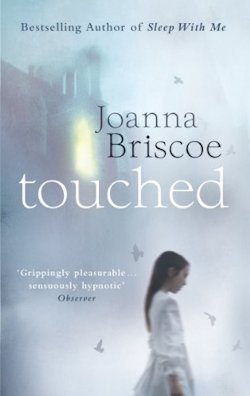From the author of a selection of elegant bestsellers, not least the sensational Sleep With Me, comes a creepy period piece, positively drenched in dread, that documents an old-fashioned family’s decision to leave London for a crumbling cottage in the countryside.
For Rowena, mother and matriarch of the many and various Crales—including her dullard of a husband Douglas—the move is meant to demarcate a break from the bland patterns of the past, but from the first, the house seems set on rejecting its new tenants. A retaining wall can’t be broken through; a damp problem proves impossibly pervasive; and in the interim, “an impression she couldn’t pin down, that the house was already inhabited […] overlaid with memories of all the years her mother-in-law had lived there,” eats away at Rowena.
It’ll be worth all the blood and sweat in the end, she tells herself. But that’s before her daughters start disappearing…
Numbers 2 and 3 The Farings were postcard cottages, age-softened and settled, with their deep-set windows and boxes of geraniums, their uneven floors and cool pantries, their small gardens tangles of mature flowers and shrubbery. The modern house in London had contained no soul, and little opportunity for her decorating dreams; The Farings, by contrast, possessed so much character, she found it hard to believe there weren’t other people there. That was why she was faintly nervy, she realised, imagining movement in other rooms, because it simply didn’t seem as though it was theirs yet.
Initially, Rowena dismisses these feelings, insisting “it was her mind playing tricks, and she turned it off like a light switch,” but they persist—and soon it seems one of her children is sensitive to them too. “This was Evangeline, who was dressed as a Victorian and had rain for hair. […] She guttered in the others’ shining, blanked out by their shadows. Where the other Crales were clean with health and Jennifer was doll-beautiful, Evangeline was a grubby, transparent girl, dragging her feet and slipping away,” quite literally latterly:
To explain the nature of Evangeline was difficult. Was she a backwards child? […] Was she handicapped? A candidate for electroshock treatment? Evangeline did not fit easily into any category, and yet she was considered mentally subnormal by those who saw her slipping, murmuring, sliding through the village in her ghost frocks. The villagers had plenty to say to the police about Miss Evangeline Crale.
But it’s as if she isn’t missed, in that no one other than Rowena really takes her disappearance seriously—and even she waits a few weeks before going to the police. It’s a whole other story when beautiful Jennifer follows in her inexplicable sister’s footsteps. Questions are asked and investigations urgently undertaken. The Pollards in particular are considered suspicious, but they’re practically friends of the family. They wouldn’t have hurt the girls, would they?
The trauma of all this turmoil is the ruination of Rowena. Her “dreams, already shattered, were irretrievable: it was the nightmare now that she fought.” A nightmare that lives in The Farings with the remaining Crales…
Touched is a terrific little ghost story, to be sure—an exemplar of the short, smart shocks of horror Hammer-branded books have represented in recent years—but the narrative is not what makes it so special. Though it’s well handled on the whole, and very prettily written—Joanna Briscoe’s prose proved an unexpected pleasure—the twist the tale takes in its later stages is too transparently telegraphed to satisfy in the final summation, and there’s some unfortunate redundancy in the remainder.
Instead, what sets Touched apart are its central characters. Rowena is a brow-beaten broodmare—all too familiar a figure in Britain in the fifties and sixties—invested with such a sense of nervous energy that her eventual unravelling is essentially inevitable. Add to that unreliable protagonist a fantastic focal point for her frenzies in Evangeline, whose secret life—out of sight and out of mind—is superlatively rendered.
Evangeline’s supposed disability is also deftly depicted, reflected as it is—if it is—by the harried or horrid reactions of others around her rather than her own entirely innocent idiosyncrasies:
Adults customarily shrank from her, ignored her, or addressed her like a simpleton. At her primary school, they had tied her to her chair to keep her in lessons, then tied her to another at lunch; but largely, she was allowed to disappear, and if people didn’t want her, such absences were her preference.
It’s just a shame Evangeline is herself absent for such a large part of the narrative. Truth is, Touched is a touch less stimulating when she’s missing.
In a fascinating afterword, the author asserts that her “characters are all haunted by their pasts, their mistakes, their longings; pursued by guilt and desire so strong, it could infiltrate a life,” and that’s clearly the case here, allowing anyone a way into Touched. To wit, this is an eminently accessible text, bolstered by a exquisitely composed story, but what makes it remarkable at the last is its juxtaposition of the genre’s foremost tropes—such as “houses in rebellion, secret rooms, figures glimpsed obliquely [and] unexplained smells”—with evils revealed to be markedly more mundane in nature.
Touched is available now in the UK from Hammer.
Niall Alexander is an extra-curricular English teacher who reads and writes about all things weird and wonderful for The Speculative Scotsman, Strange Horizons, and Tor.com. He’s been known to tweet, twoo.










